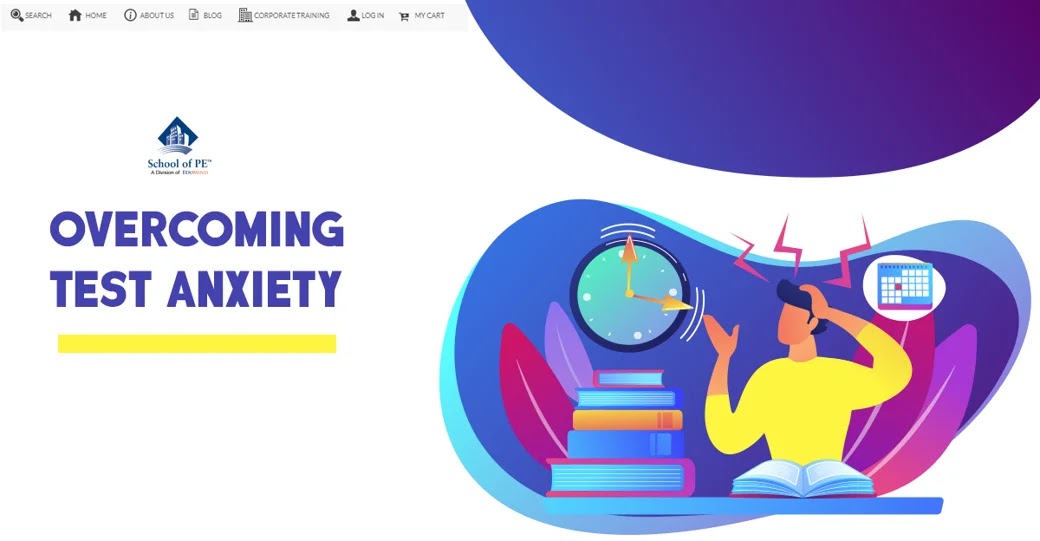The FE/PE exam is one of the most important tests that an engineer will take in his or her career, so, it is natural to be a bit anxious while preparing for and taking this exam. The anxiety or nervousness that one feels before and during the exam is known as test anxiety.
According to www.verywellmind.com [1], "test anxiety is a physiological condition in which people experience some distress and anxiety in testing situations." To some degree, most people experience performance anxiety, especially if they are in situations where the pressure is on and good performance counts. This can happen before, during, and after the exam. In some instances, the anxiety levels are so high that people become completely impaired resulting in poor performance and even failure of the exam.
Test anxiety can be caused by a combination of things. Typically, it may be caused by past poor performance, not being prepared, poor study habits, or an underlying anxiety problem. Test anxiety can affect anyone-both those who are prepared and those who are ill prepared. If you have experienced an increase in your stress levels on an exam that resulted in failure, you must first recognize what is happening and use these tips to help you combat this problem.
Test anxiety symptoms affect everyone differently. According to the Anxiety and Depression Association of America, symptoms of test anxiety can be physical, behavioral, cognitive, and emotional [2]. Headaches, upset stomach, rapid heart rate and breathing, and lightheadedness are common symptoms of physical test anxiety. In severe cases, people can become nauseous and short of breath. Common behavioral and cognitive symptoms include negative thinking, difficulty focusing, and test avoidance. This happens often when students compare themselves with other students. Emotional symptoms include feelings of helplessness, hopelessness, fear, anger, disappointment, and low self-esteem.

According to the Mayo Clinic [3], it is possible to reduce test anxiety and increase performance by adapting certain strategies. Study efficiently by taking advantage of study techniques and test-taking strategies. It is better to study a little at a time over a longer period of time rather than cramming for the exam at the last minute. Try keeping a study schedule and sticking with it. Make sure you are in communication with your teacher, especially for concepts that you do not fully understand. Focus on staying calm and being confident. Learn to redirect your thoughts and feelings of negativity when they arise. Drink plenty of water and eat a balanced, brain-fueling diet. Regular exercise is known to produce positive endorphins. Finally, if these self-help techniques are not working, you can always seek professional guidance for other strategies to help you. Incorporate test-taking strategies. On the day of the exam, remember that each exam question is scored the same, so it is recommended to read through the exam booklet and label each problem in increasing order of difficulty (for example, easier problems first, allowing additional time for more difficult problems).
References:
No comments :
Post a Comment